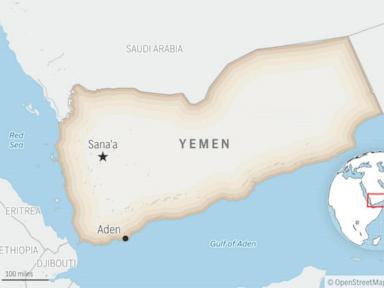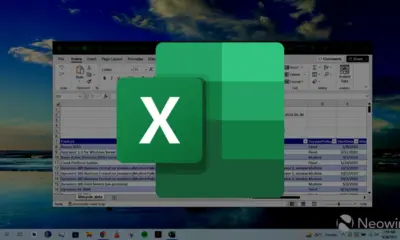Technology
Undersea Cable Cuts Disrupt Internet Access Across Asia and Middle East

Undersea cable cuts in the Red Sea have caused significant disruptions to internet access in parts of Asia and the Middle East. Experts reported the incident on Sunday, though the precise cause remains unclear. Concerns have been raised regarding the potential targeting of these cables by Yemen’s Houthi rebels, who assert that their actions aim to pressure Israel amidst its ongoing conflict with Hamas in the Gaza Strip.
The Houthi rebels have previously denied involvement in attacks on undersea cables. These cables, critical to global internet infrastructure, are often damaged by ship anchors, but they can also be intentionally severed. While internet service providers typically have multiple access points to reroute traffic, the current situation has led to slower internet speeds for users in affected regions.
Microsoft announced on its status page that the Middle East may experience increased latency due to “undersea fiber cuts in the Red Sea.” The company did not provide further details, but noted that internet traffic not passing through the Middle East remained unaffected.
According to NetBlocks, an organization monitoring internet connectivity, the cable outages have degraded service for several countries, including India and Pakistan. The organization identified failures impacting the SMW4 and IMEWE cable systems near Jeddah, Saudi Arabia, as the source of the disruptions. The South East Asia–Middle East–Western Europe 4 (SMW4) cable is operated by Tata Communications, while the India-Middle East-Western Europe (IMEWE) cable is managed by a consortium overseen by Alcatel Submarine Networks. Requests for comments from both companies went unanswered.
In Pakistan, Pakistan Telecommunications Co. Ltd., a major telecommunications provider, acknowledged the cable cuts in a statement released on Saturday. Meanwhile, Saudi Arabian authorities have not publicly recognized the disruptions, nor have they responded to inquiries regarding the situation. In Kuwait, officials confirmed that the FALCON GCX cable, which also runs through the Red Sea, has been cut, affecting internet connectivity in the nation.
Users in the United Arab Emirates, particularly on state-owned networks Du and Etisalat, have reported slower internet speeds, yet the government has not acknowledged any disruptions.
The cuts to the undersea cables coincide with escalating tensions in the region, as Yemen’s Houthi rebels have conducted a series of attacks targeting Israel in response to the Israel-Hamas conflict. In recent weeks, the Houthis have intensified their military campaign, prompting Israeli airstrikes that have reportedly killed key leaders within the rebel movement.
Moammar al-Eryani, the information minister for Yemen’s internationally recognized government, stated that the cable cuts cannot be divorced from the ongoing series of attacks by the Houthi militia. He emphasized that the situation in the Red Sea serves as a “wake-up call” for the international community, urging a strong response to protect vital digital infrastructure.
From November 2023 to December 2024, the Houthis targeted over 100 vessels with missiles and drones, resulting in the sinking of four ships and the deaths of at least eight mariners. The Iranian-backed group briefly halted its attacks during a ceasefire in the Israel-Hamas war.
The current escalation follows a period of intense airstrikes ordered by U.S. President Donald Trump against the Houthis, leading to a temporary ceasefire. The Houthis have reportedly resumed their attacks, creating further uncertainty in the region as potential talks regarding Iran’s nuclear program remain unresolved.
Repairing undersea cables is a complex process that often takes weeks, requiring specialized ships and crews to locate the damaged sections. As internet connectivity remains crucial for both personal and business communications, the impacts of these disruptions are likely to be felt widely across the affected regions.
-

 Science1 month ago
Science1 month agoNostradamus’ 2026 Predictions: Star Death and Dark Events Loom
-

 Technology2 months ago
Technology2 months agoOpenAI to Implement Age Verification for ChatGPT by December 2025
-

 Technology6 months ago
Technology6 months agoDiscover the Top 10 Calorie Counting Apps of 2025
-

 Health4 months ago
Health4 months agoBella Hadid Shares Health Update After Treatment for Lyme Disease
-

 Health5 months ago
Health5 months agoAnalysts Project Stronger Growth for Apple’s iPhone 17 Lineup
-

 Technology4 months ago
Technology4 months agoElectric Moto Influencer Surronster Arrested in Tijuana
-

 Education5 months ago
Education5 months agoHarvard Secures Court Victory Over Federal Funding Cuts
-

 Health5 months ago
Health5 months agoErin Bates Shares Recovery Update Following Sepsis Complications
-

 Technology6 months ago
Technology6 months agoDiscover How to Reverse Image Search Using ChatGPT Effortlessly
-

 Technology7 months ago
Technology7 months agoMeta Initiates $60B AI Data Center Expansion, Starting in Ohio
-

 Technology7 months ago
Technology7 months agoRecovering a Suspended TikTok Account: A Step-by-Step Guide
-

 Science3 months ago
Science3 months agoStarship V3 Set for 2026 Launch After Successful Final Test of Version 2





















